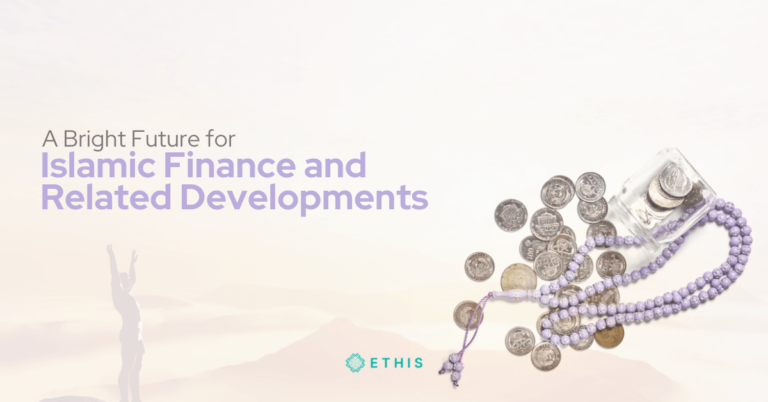
An Interview with Dr.Ismah Osman, Faculty of Business and Management Darul Ehsan, Malaysia
Q: As a scholar who has been very much involved in the Islamic Banking and Finance sector, how would you assess the growth of this sector over the years and as it stands today?
A: According to a report by the State of the Global Islamic Economy Report 2020/2021, Islamic finance assets rose in value by 13.9 percent in 2019, from US$2.52 trillion to US$2.88 trillion. Iran, Saudi Arabia, and Malaysia are the top three nations in terms of the value of Islamic finance assets, and their positions from the previous year have not changed. However, due to COVID-19, the value of Islamic finance assets is predicted to stagnate in 2020, then to recover and expand at a 5-year compound annual growth rate of 5% from 2019 to reach $3.69 trillion by 2024. Significantly, in spite of the fact that the gross domestic product growth in certain countries is expected to be lower than in the past, the Islamic finance sector will continue to expand by 10 to 12 percent over the next two years, according to S&P Global Ratings.
Thus, Islamic financial products and services continue to provide solutions on assisting companies and individuals in acquiring the knowledge, technological capabilities, platforms, and finance necessary towards global halal and green economy regulations and trends. This can be further witnessed through product evolvement, including Sukuk issuance, fintech platforms and apps, shariah-compliant wealth products, digitalization of financial services, thus, creating a robust and optimal product and services portfolio.
Although the COVID-19 epidemic slowed the expansion of Islamic finance this year, it has sparked the creation of more accessible and socially responsible financing, whether via crowdfunding, public-private partnerships, or assistance for SMEs. More importantly, as well as traditional financial instruments, Islamic banks and financial institutions are increasingly supporting social impact-related investments and projects. These include anything from green bonds to climate Islamic bonds, social finance, zakat governance, micro-financing, among other things.
Q: What do you think are the impediments preventing the rapid growth of the IB & F sector and any particular reasons for this?


A: Islamic financial products and services, the capital market, as well as the takaful players have continued to consolidate in the Islamic finance market. The tendency is projected to continue, given the protracted recession and the deteriorating oil economy. Investment activity is projected to continue to behave poorly, although investments in the fintech industry may increase as digital skills become more important.
The advent of wealth management tools, Shariah-compliant robo-advisory, and other investment alternatives has provided customers with additional investment options and is likely to stimulate the future expansion of the industry, including ESG and impact investing possibilities. This will be supported by the implementation of further Islamic finance rules and regulations, which will increase customer confidence in the business.
Nevertheless, challenges can be also witnessed In Islamic finance. For investors, there is currently no internationally approved, harmonised regulatory framework in place to safeguard those investors in Islamic private market investments, which may have an effect on future demand for halal investments. Additionally, Islamic investment growth may remain sluggish, making it more difficult to achieve a larger market share in the global economy. Customers in Muslim marketplaces will gravitate toward ethical solutions rather than strictly Islamic ones.
The government can however capitalise on the growing interest in Islamic finance by fostering an atmosphere conducive towards growth, creating a better and more holistic ecosystem. However, the development of Islamic financial rules, guidelines, and regulatory frameworks are still rather at a gradual phase. Islamic finance is still in its infancy in terms of standards, particularly in terms of execution. Despite the efforts of established Islamic financial sector actors, several topics remain unresolved, for instance, Islamic social finance regulatory structures, are likewise underdeveloped in the vast majority of OIC member states. Significantly, Islamic finance will struggle to keep up with the expansion of the conventional sector.
Further, business entities can have access to financing and digital transformation via their financial instruments. Nonetheless, the COVID-19 pandemic puts considerable strain on firms in most industries and nations, including those engaged in the Islamic financial services business. The negative repercussions relate to decreasing profitability, lack of demand, and lower performance. Apparently, this uncertainty generated by the pandemic might contribute to decreased consumer buying power and force companies to shut down, which, in turn, would limit the growth of Islamic finance.
Q: What do you think are the areas Islamic finance should be focusing on now, especially in a world where innovation and venture capital are the main drivers in an increasingly competitive economy?
A: The Islamic finance industry has grown dramatically in recent decades, both in terms of size and geographic reach. Despite the fact that it is still relatively small, the Islamic finance market share in the global finance industry is fast expanding and has garnered attention across the globe for increasing financial inclusion, poverty reduction, and further expansion of financing capacities for new growth. Indeed, Islamic finance has a role to play and the potential to positively contribute to nations’ development as it is renowned for its value-based principles and equality for all.



Nonetheless, at present, we are currently witnessing the growth of the Islamic Digital Economy (IDE) having to serve as a catalyst for the development of new and trendy Islamic financial and halal industries. Both are meaningless in the absence of an IDE. Nevertheless, while the COVID-19 pandemic has wreaked havoc on the world economy and markets, it has boosted demand for halal products and services, including Islamic through this digital platform. Businesses are ramping up their internet presence in response to the pandemic and in anticipation of the future.
For instance, Malaysia’s online grocery firms experienced a 220 percent increase in online retail penetration last year, the greatest level since 2018. As a result, organisations seeking growth prospects can investigate the halal industry and integrate digital technology into their daily operations and processes. Digitalisation may result in the development of applications for digital halal certifications and the conduct of halal operations via internet channels and blockchain technology. On the other hand, the SMEs in need of financing for their halal enterprises may consider a wider choice of products towards capacity-building. Indeed, with innovation and technological development, the world is rapidly reinventing itself, resulting in enormous benefits for society. Muslims in particular have the opportunity to develop innovative solutions and ecosystems in the Islamic Digital Economy in order to meet and satisfy unique demands, in accordance with Islam’s universal ethical values.
Consequently, we are expecting more foreign venture capital companies to invest in Malaysia’s Islamic digital economy ecosystem. Access to investment can be difficult in this market, particularly given the region’s scarcity of capital sources focusing on start-ups, to serve the needs of Muslim consumers.
Following a record year, global investment in Islamic economy-related enterprises slowed, decreasing 13% to US$11.8 billion in 2020 from the previous year, as reported by State of the Global Islamic Economy 2020/21. Over 54% of investments were made in halal products, while 41.8 percent and 4% of investments were made in Islamic finance and lifestyle, respectively. Eventually, corporate-led mergers and acquisitions, as well as venture capital investments in technology start-ups, and private equity investments are the driving force of growth. Nonetheless, challenges may exist as the regulators are sure to demand those firms to engage a Shariah consultant, to provide the necessary experience, guidance, and endorsement.
Q: New developments like Fintech and crowdfunding have grown exponentially of late. What do you think are the reasons for this and how could it be taken forward to reach the maximum potential?


A: Fintech adoption in Islamic financial services creates enormous prospects for decentralisation of existing and new financial services business models in order to advance financial inclusion. Fintech, as a critical enabler of financial inclusion, provides convenience and flexibility in usage, particularly for the low-income population in terms of pricing and physical access. Globally, technology is assisting in making it a reality by providing support to financial service providers (e.g. start-ups and technology businesses) in terms of innovation and expansion.
Apart from that, fintech companies are increasingly experimenting with new value propositions targeted at making financial services more affordable and accessible to low-income users, as well as improving customer experience. However, technology start-ups are frequently seen as risky, experience difficulties obtaining finance to expand, and rarely attract adequate attention from private investors. Rather than that, they rely on seed funds from trustees, including foundations, and other impactful investment communities, essentially through crowdfunding.
Crowdfunding is a method of financing initiatives and businesses. It enables fundraisers to collect funds online from a huge number of people. Crowdfunding is most frequently utilised by start-ups and expanding enterprises to raise alternative capital. It is a novel method of funding new projects, enterprises, or ideas. Additionally, it can be used to build a community around your goods. Additionally, by leveraging the strength of the online community, it can get valuable industry insights and gain access to new clients.
Crowdfunding platforms including Shekra and Yomken of Egypt, and Ethis in Malaysia, to name a few, are committed to bridging the financial gap in the Islamic finance and microfinance industries. The significance of these projects cannot be overstated: they represent not just the advancement of Islamic finance, but also its relationship to entrepreneurship, job creation, and, eventually, economic development. Additionally, their success may result in the diversification of Islamic finance providers and products available to individuals who are currently excluded from the financial system. While the future of new developments appears to be optimistic, the road ahead will definitely be difficult, as political and economic volatility will undoubtedly have an impact on performance.
More importantly, Islamic financing is crucial for financial inclusion. As Islamic finance embraces the SDGs and sustainable finance and investments, there is a strong belief that the industry is progressing toward a more equitable financial system. Islamic market solutions which are implemented appropriately can benefit numerous individuals and communities. This is critical to ensuring that the efforts have the desired impact and are sustainable in the years to come.





Top Posts
Islamic P2P Crowdfunding Explained
How to Earn Halal Money? The Money Mindset
Halal Investments for Singapore Muslims? It’s time for a shake-up in the Islamic Investments scene.
Smart investment for making Halal money
3 Reasons Why Property Crowdfunding is the Smart Investment for You